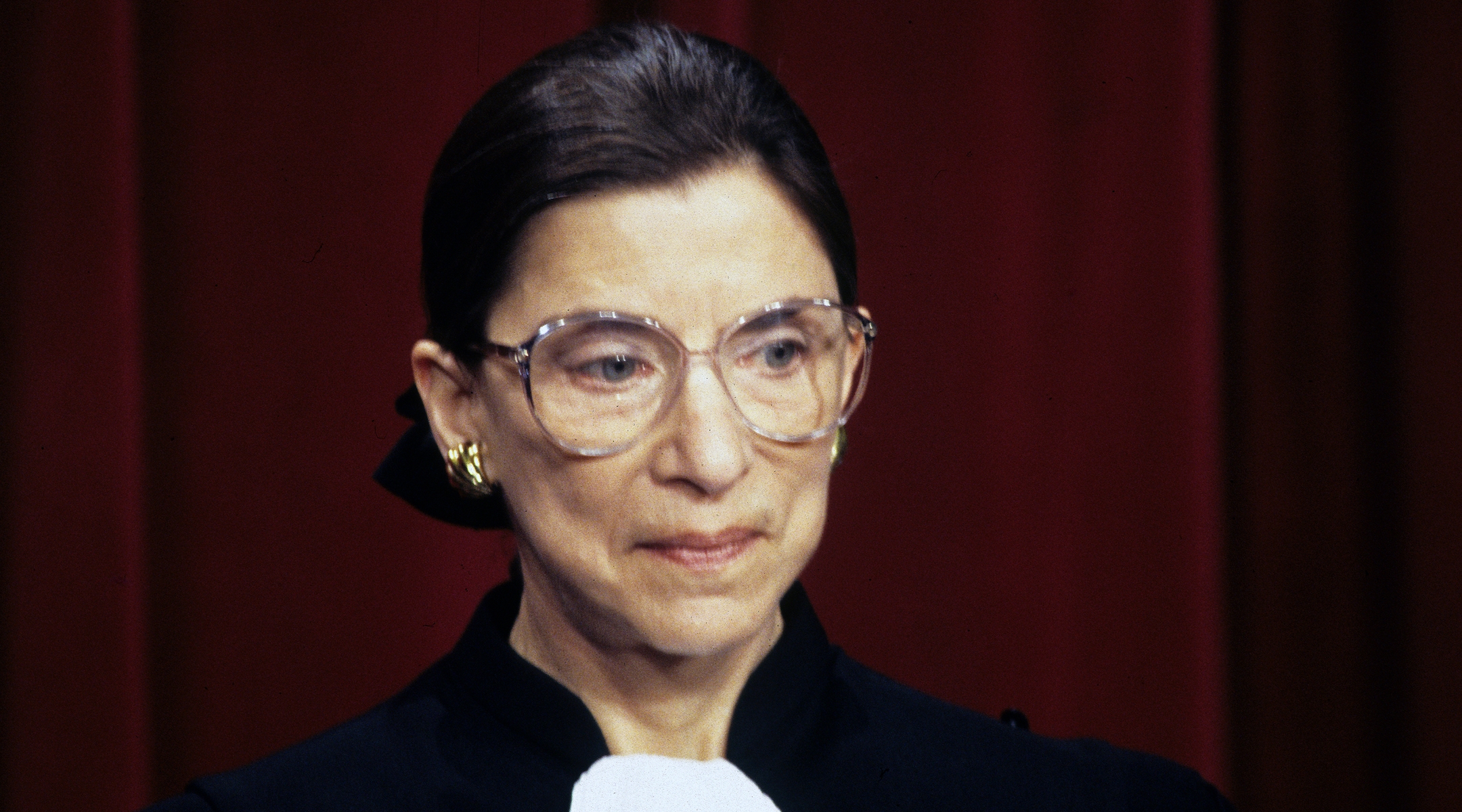Supreme Court nominee Ruth Bader Ginsburg, who would be the first Jewish woman ever to sit on the high court, invoked her family’s religious background as she began her confirmation hearings this week.
In her opening statement Tuesday before the Senate Judiciary Committee, Ginsburg mentioned that her grandparents, like many other Jews in Europe, fled from pogroms and other persecution to the United States.
They “had the foresight to leave the old country when Jewish ancestry and faith meant exposure to pogroms and denigration of one’s human worth,” she said.
Later, during questioning from the senators, Ginsburg spoke of the discrimination that Jews faced in America several decades ago. Recalling how some country clubs used to bar admission to “dogs and Jews,” she said, “One couldn’t help but be sensitive to discrimination, being a Jew in America during World War II.”
Ginsburg, currently a judge on the U.S. Court of Appeals here in Washington, is regarded as a moderate. “My approach, I believe, is neither liberal nor conservative,” she told the committee.
If the senators’ warm greetings and gentle questioning of Ginsburg on the first day of hearings are any indication, she is likely to win easy confirmation by the Senate. If confirmed, she would be the first Jewish justice on the court since Abe Fortas resigned in 1969.
Based on her judicial writings and speeches, Ginsburg has drawn initially favorable reviews from Jewish groups.
Like other interest groups here, the Jewish organizations have been busily combing through Ginsburg’s legal past, attempting to decipher her views on a host of issues. Because she does not tend to write lengthy concurrences or dissents, it is often difficult to pinpoint what she really thinks.
Ginsburg is known as a pioneer in the field of women’s rights legislation, and won praise from Jewish groups for her work on discriminationrelated issues.
RULED ON POLLARD APPEAL
On church-state issues, another major concern of the Jewish community, Ginsburg’s record is less clear. Overall, though, most Jewish groups think she will be an improvement over retired Justice Byron White, whom she would replace on the court.
White was often on the other side of many church-state issues from the Jewish community.
In one possible indication of her leanings, Ginsburg dissented in a 1984 case involving a Jewish member of the U.S. armed forces who was banned from wearing a yarmulka while on duty. Ginsburg wanted the full appeals court to hear the case, but the majority of the court ruled the other way.
While Ginsburg’s dissent did not necessarily show that she would have supported the man had the court heard the case, some in the Jewish community felt it showed she had an expansive understanding of a person’s constitutional right to practice religion freely.
Ginsburg was also involved in the controversial case of Jonathan Pollard, convicted of spying on behalf of Israel. She was one of the judges who, last year, rejected Pollard’s appeal of his life sentence.
Because the Pollard case sharply divided the Jewish community, most Jewish groups have not wanted to take a position on how Ginsburg’s ruling bears on her nomination.
Another controversial issue is Ginsburg’s stand on abortion Unlike other recent court nominees, whose views on abortion were closely guarded mysteries, Ginsburg has written and spoken on the issue.
She has criticized the court’s landmark 1973 Roe vs. Wade decision, which provided a constitutional basis for legalizing abortion.
But her criticisms are seen as well within the range of pro-choice thinking. She has argued that instead of finding a basis for legalizing abortion in some vague constitutional right to privacy, the court should have used other grounds, such as the 14th Amendment’s Equal Protection Clause.
JTA has documented Jewish history in real-time for over a century. Keep our journalism strong by joining us in supporting independent, award-winning reporting.
The Archive of the Jewish Telegraphic Agency includes articles published from 1923 to 2008. Archive stories reflect the journalistic standards and practices of the time they were published.




